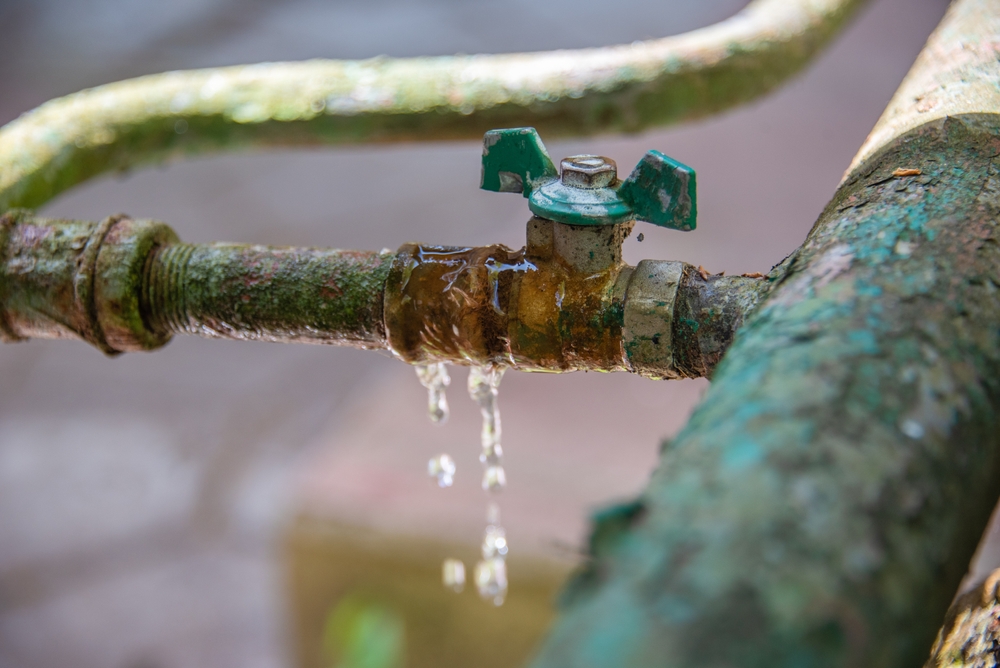Top 5 Causes of Burst Pipes (and How to Prevent Plumbing Repairs)
A burst pipe can cause major damage in a matter of minutes, flooding your home, ruining your belongings, and leading to costly repairs. In colder parts of Canada like Ontario, Alberta, and Quebec, plumbing systems are especially vulnerable during seasonal transitions. Knowing what causes pipes to burst is the first step in avoiding this expensive headache.
Below are the top five reasons pipes fail, and the steps you can take now to avoid future repairs.
Table of Contents
- 1. Frozen Pipes in Cold Weather
- 2. High Water Pressure
- 3. Corrosion and Pipe Aging
- 4. Clogs and Blockages
- 5. Poor Installation or DIY Repairs
- Protect Your Home with a Plumbing Check
- Frequently Asked Questions
1. Frozen Pipes in Cold Weather
The most common cause of burst pipes across Canada is freezing temperatures. Freezing water inside pipes expands, causing a rise in pressure. Eventually, that pressure can cause the pipe to rupture, especially if it’s made from copper or plastic.
How to prevent it:
- Insulate exposed pipes in unheated spaces like basements, attics, and garages.
- Keep indoor temperatures consistent, especially overnight.
- Let a small trickle of water run during extreme cold to keep water moving.
If your pipes have already frozen or you’re noticing signs like low water pressure, call us to get support from an expert plumber.
2. High Water Pressure
While high water pressure might feel great in the shower, it can be harmful to your plumbing. Pressure levels above 60 psi are considered excessive and may stress pipe joints and valves, increasing the likelihood of a burst.
Signs of high pressure:
- Banging pipes (known as water hammer)
- Leaky faucets or running toilets
- Shortened lifespan of appliances
Prevention:
Install a pressure regulator and have it inspected regularly. If you’re unsure about your pressure levels, a professional plumber can test it for you during a home plumbing inspection.
3. Corrosion and Pipe Aging
Over time, pipes deteriorate, especially older metal ones like galvanized steel or copper. Rust and mineral buildup can weaken the walls and make them prone to splitting.
Prevention:
- If your home is over 30 years old, have your plumbing system assessed for corrosion.
- Look for discoloured water, reduced flow, or greenish stains around joints.
- Upgrade ageing pipes with PEX or modern materials that resist corrosion.
If you need help, 247 Emergency Plumber will dispatch licensed professionals to inspect your plumbing system and recommend preventive measures.
4. Clogs and Blockages
Not all blockages are harmless. Severe clogs can create pressure buildup inside your pipes. If left untreated, this pressure can lead to cracks or full pipe bursts.
Prevention:
- Avoid flushing anything other than toilet paper.
- Keep cooking oils, coffee grounds, and fibrous food waste out of drains.
- Schedule a professional drain cleaning at the first sign of slow drainage or gurgling sounds.
5. Poor Installation or DIY Repairs
Improperly installed pipes, connectors, or joints are far more likely to fail. This includes DIY jobs done without proper tools or knowledge of code requirements. It may work temporarily but could cause expensive damage later.
Prevention:
Always rely on a qualified, licensed plumber for any installation, major renovation, or repair. Shortcuts and quick fixes can compromise your entire system. To book a trusted plumber in your area, contact us today.
Protect Your Home with a Plumbing Check
A burst pipe is not just an inconvenience. It can lead to soaked floors, damaged walls, and thousands of dollars in restoration costs.
Regular maintenance and professional inspections help you stay ahead of costly problems before they get worse. If you notice fluctuating water pressure, unusual smells coming from drains, or visible pipe corrosion, it is time to take action. Call the experts for a proper plumbing check and keep your home safe.
Frequently Asked Questions
- How do I know if a pipe has burst? Signs include sudden water stains on walls or ceilings, the sound of rushing water behind walls, or a rapid drop in water pressure. You may also notice pooling water in unexpected places.
- What should I do while waiting for the plumber? Shut off the main water supply immediately to limit damage. If safe, try to drain any remaining water from taps. Mop up excess water and move valuables to dry areas.
- How can I prevent plumbing emergencies? Have your plumbing system inspected annually. Insulate exposed pipes, monitor your water pressure, and never ignore early warning signs like slow drains or water stains.
- What areas do you serve for emergency plumbing services? Licensed professionals are available across the Greater Toronto Area and nearby communities, including Toronto, Mississauga, Vaughan, Scarborough, Richmond Hill, Oakville, Milton, and others in the region.
- How fast can a plumber reach my location? In most cases, a licensed plumber can arrive at your home within one hour of your call, depending on traffic and road conditions. Our goal is to ensure fast, reliable service when you need it most.
